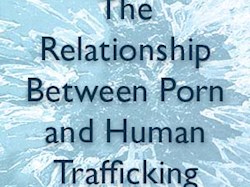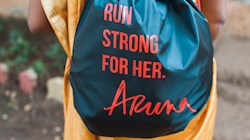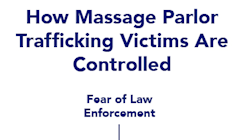Arming Women in the Quest to Prevent Trafficking
August 16, 2019
Tifany Boyles
Spotlight
�
Women & Girls
A Case Study on Sex Trafficking Prevention: Part 1
Sex trafficking. Thanks to the good work of sedulous activists for a decade, most of us are aware of the depth of this horrific issue. It is the epitome of injustice in which powerful predators prey on vulnerable women and children in order to trap them in a lifelong nightmare. However, those who are trafficked don’t begin their lives in this horror. They start with great power and potential. What if we tapped into that power and potential and added tools and opportunities so their stories never included trafficking?
Most of us have moved on from needing to be educated to now asking the pivotal question: I want to help, but what can I do? It is imperative that we all start asking ourselves not just how we can help, but how we can help prevent this from occurring in the first place. The following case study is the beginning of a beautiful story in which four mighty organizations come together to go upstream from this problem and prevent human trafficking from ruining countless lives and, in the end, change the story entirely.
The problem
As a refresher on the facts, here is a brief summary:
- The most common figures estimate there are 45.8 million people currently enslaved worldwide.[1]
- According to UN research, nearly 80 percent of those trafficked for any reason are women or children.[2]
- Of these, the International Labor Organization (ILO) reports that 22 percent of victims of slavery are sex slaves[3]. This means almost ten million people today are being forced into sexual slavery.
- Once trafficked, even if rescued, self-confidence is low, drug-use and recidivism are high, lifespans are shortened, and hopefulness for a bright future has vanished
Due to these reasons, and others listed in this comprehensive article, economic security for women and education for children are two of the best preventative solutions to fight sex trafficking. These are our tools.
The collaboration
Street Business School (SBS), the Jernigan Foundation and two anti-human trafficking (AHT) organizations (not yet identified) will come together to catalyze resources and share expertise in order to bring entrepreneurial education to women living in deep poverty in communities considered trafficking “source” locations.
SBS is an award-winning non-profit, igniting the impact of other organizations by equipping them with entrepreneurial training for women of all ages. On average, a woman starts SBS with an income of $1.35 per day. Within two years of graduating from this six-month training she has tripled her income, literally lifting herself out of poverty according to the World Bank standards[4]. This income change is sustained due to the curriculum focusing not just on core business skills, but on igniting the spark and self-confidence that lives within us all. In 2015, SBS began to scale through an innovative social franchise model. By 2017, SBS had franchised through 19 NGOs. This increased to 46 NGOs by the end of 2018, and, to date, this number has increased to 66 organizations that have partnered to become SBS-certified and add this income generating program to the work they are already doing in their communities.
The benefits are as follows:
- Women learn to be financially self-sufficient and are able to take care of their children.
- Children go to school and, for every year they attend, they earn an average of 10 percent more income as an adult.[5]
- SBS is able to bring its work to more communities faster and with more customization through partner organizations.
- Partners get to reduce poverty as an obstacle in order to further their own mission whether it is access to healthcare, education, conservation or, in this case, anti-human trafficking.
The Jernigan Foundation has a long history of investing resources in the AHT movement. They have lifted voices, sat at the table, funded the work and prayed the prayers. In 2018, the Jernigan Foundation began exploratory talks with SBS to discuss how to go upstream from the source and prevent trafficking. It was agreed - women’s economic development and the education of children are the best ways to address prevention. While all involved knew SBS’ work was proven to achieve these goals, applying it specifically to anti-human trafficking would be a new quest for everyone.
Rewriting the story
In June 2019, the Jernigan Foundation gave a grant of $10,000 to fund two SBS Bursaries. Essentially, a bursary covers SBS’ cost of training an NGO partner and reduces the fee significantly for said partner to become SBS-certified.
- To the Jernigan Foundation, the bursary model offered an opportunity to leverage one grant to fund three organizations: SBS and its two AHT partners.
- To SBS, the grant allows targeted outreach to AHT organizations and ensures cost will not be prohibitive to obtain the SBS training and incorporate SBS as a prevention strategy.
- Two AHT organizations will be able to incorporate SBS at a reduced fee, add a proven income generating program for their beneficiaries, and reduce vulnerability of being trafficked.
The Jernigan-SBS Bursaries will give priority to AHT organizations doing work in source communities who are willing to add or expand a prevention focus to their existing framework. Source communities consist of areas in which traffickers target women and children due to their high levels of vulnerability and desperation for income.
The Jernigan Foundation stated, “We are delighted to partner with SBS as they empower women through life-changing work. Women who don’t have dignified work will sell their bodies to feed their children or succumb to the lures of traffickers who promise jobs and income for themselves or their daughters – only later selling them into the sex trade. SBS prevents those shackles of slavery and shame before they ever start by empowering women to do work they’re proud of, provide for their families, and live joyful and free.”
The strategy needed is clear. Arming women and children in their local communities with stable livelihoods and education is critical to prevent human trafficking.
Measuring success
Since announcing the bursary to this community of NGOs, eight AHT organizations have already expressed interest in applying to SBS. Following training and graduation, the goal is to witness:
- AHT organizations providing SBS to a unique demographic and new communities.
- The benefits of implementing SBS to prevent victim sourcing based on abject poverty.
- Quantitative data from the specific AHT-centered cohorts such as classroom sizes, graduation rates, income increases and business retention.
- Qualitative data such as testimonials from those served to showcase the value of economic security and education as critical tools in this fight.
While all are aware of the newness of this collaboration, we also see it as leveraging a proven concept that has minimal risk and will result in more women being equipped and able to protect themselves and their families. In a year, we will share how this collaboration developed and report out in “A case study on sex trafficking prevention: Part II.”
In the meantime, here are a few ways you can help prevent sex trafficking of women and children.
- Be a connector. Introduce SBS to AHT organizations today.
- Be a partner. If you are an AHT organization, consider applying for this SBS Bursary.
- Be a funder. Consider joining the Jernigan Foundation and giving multiple organizations an opportunity to get trained, so they too can help prevent human trafficking.
Be an advocate. Share this case study (the first of two) to advocate for more resources and support for AHT prevention.
[1] https://www.globalslaveryindex.org/findings/
[2] https://www.un.org/sustainabledevelopment/blog/2016/12/report-majority-of-trafficking-victims-are-women-and-girls-one-third-children/
[3] http://www.ilo.org/global/about-the-ilo/newsroom/news/WCMS_182109/lang--en/index.htm
[4] https://www.worldbank.org/en/topic/poverty/brief/global-poverty-line-faq
[5] https://www.globalpartnership.org/education/the-benefits-of-education
Topics:
Women & Girls












